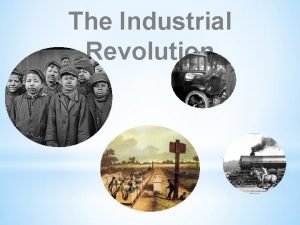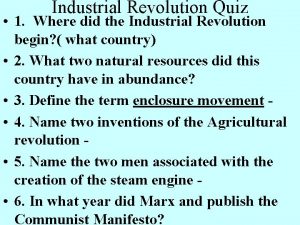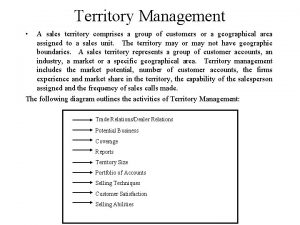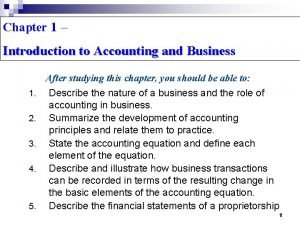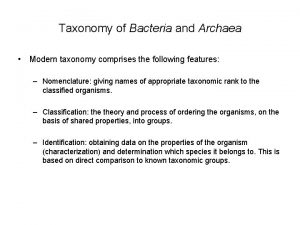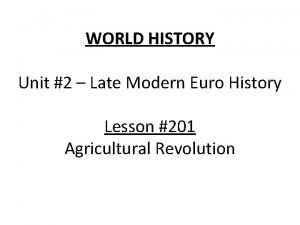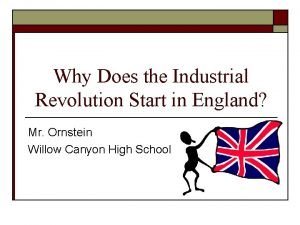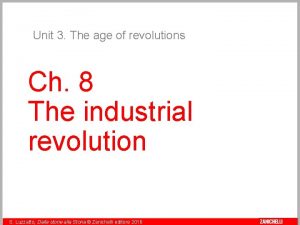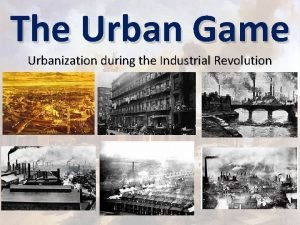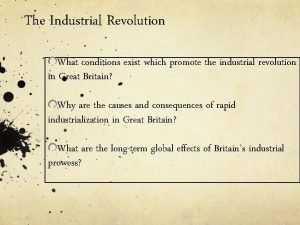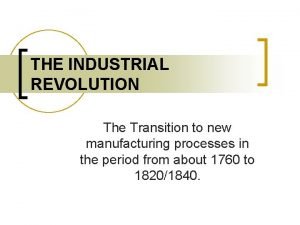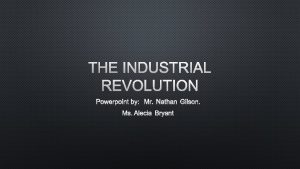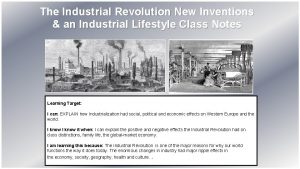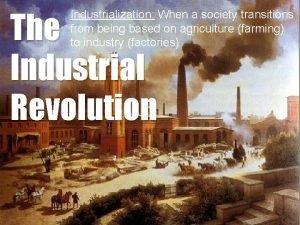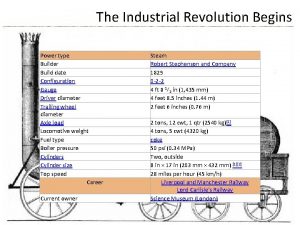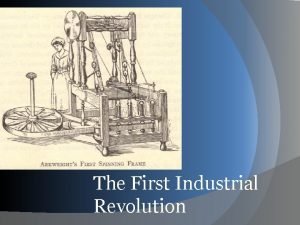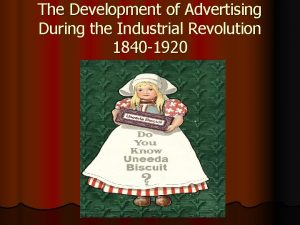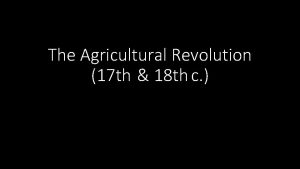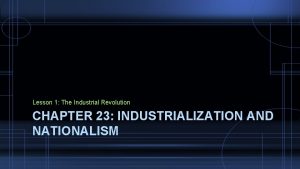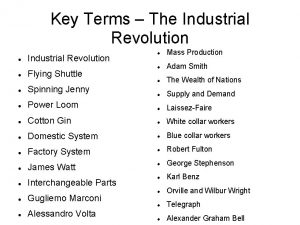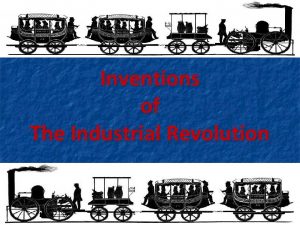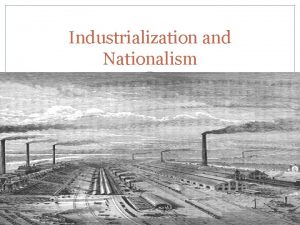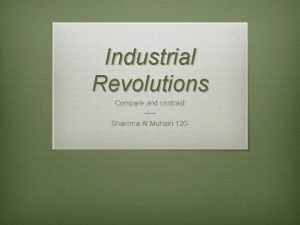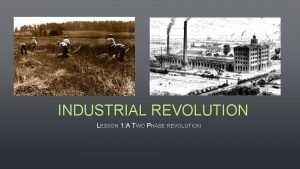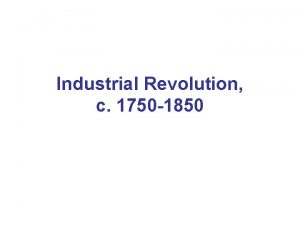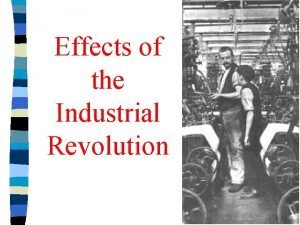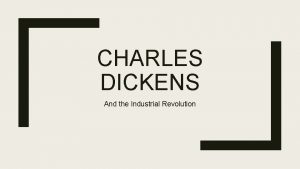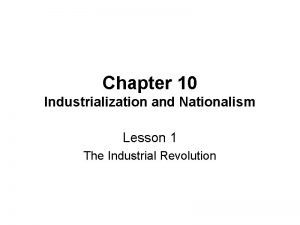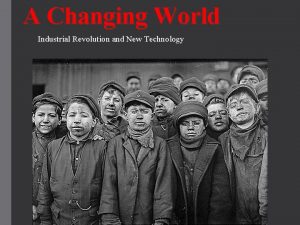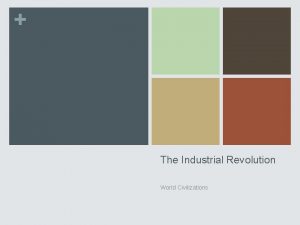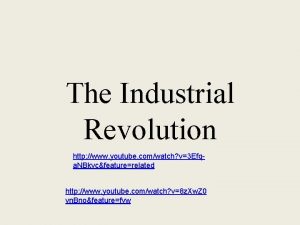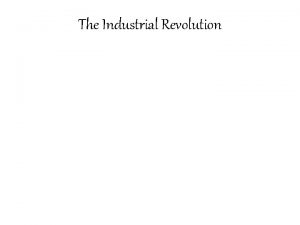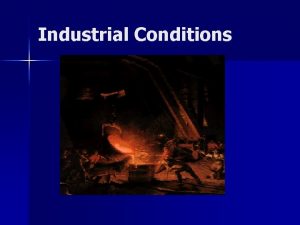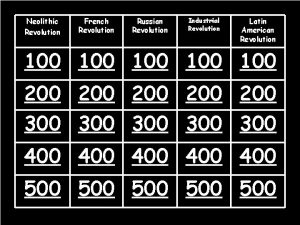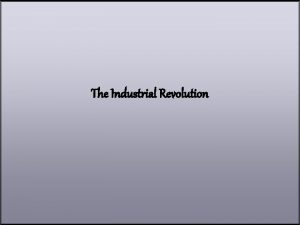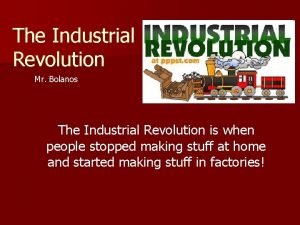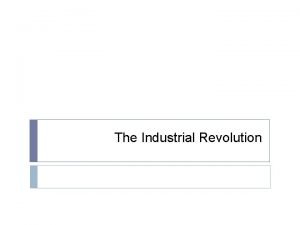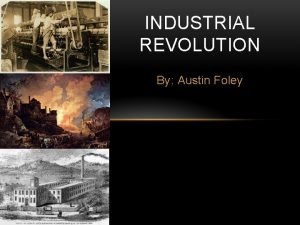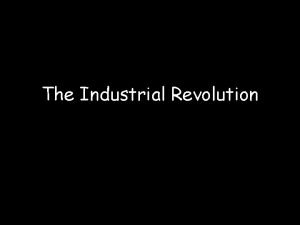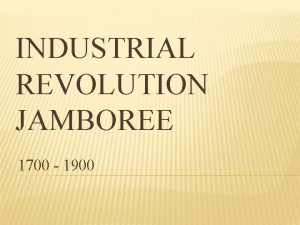The Industrial Revolution The complete quiz comprises of

















































- Slides: 49

The Industrial Revolution

The complete quiz comprises of 5 rounds. Suggestions … 1. Break into teams of 3 to 6 or people. 2. Each team should choose a captain. 3. Each team should choose a team name. Nb: maximum of 3 points for team names. 4. After each round the team with the lowest score can steal a player from any other team. Nb. captains cannot be transferred. Some rounds work well using mini whiteboards.

If you don’t already have the accompanying answer template

Round 1 Multiple Choice

1 : Causes of the Revolution : The odd one out ? A Money B Markets C Materials D Metals

2 : An entrepreneur: best answer. A A person who builds a company or business B An investor C A person who works hard in a factory D An inventor

3 : Odd one out ? A Urban B Town C Rural D City

4 : Best date fit for the Industrial Revolution A 1650 - 1800 B 1750 - 1950 C 1750 - 1900 D 1600 - 1900

5 : Two revolutions that also took place with the IR A Communication Revolution B Russian Revolution C Transport Revolution D Computer Revolution

6 : The number of days to get from Manchester to London in 1750. . A 1 B 12 C 3 D 4

7 : The reaction to road tolls ? A Betty Brawls B Rebecca Riots C Penelope Protests D Diane Demonstrations

8 : The Liverpool to Manchester railway was a first because. . A It cut down the travel time from Manchester to London B It was the first to transport coal C It was the first to transport people D It was the first to transport textiles

9 : What advantage did canals have over roads? A They were faster B They were cheaper C They could transport heavier goods D They were more relaxing

10 : The name of George Stephenson’s steam powered train? A Thomas B The Rocket C Mr Puffy D The Locomotive

End Of Round 1 The team with the lowest score can steal a player from any other team.

Round 2 Industrial Inventions

1 2 3 6 4 7 5 10 8 9

1 2 Phonograph Steam Engine (Newcomen) 3 Telephone 6 4 7 5 Model T Ford Spinning Jenny Steam Engine ( Watt ) Flying Shuttle 10 8 9 The Rocket Telegraph Sewing Machine

End Of Round 2 The team with the lowest score can steal a player from any other team.

Round 3 Q and A Suggestion : use wipe / flash boards or scrap paper for this round

1: What did a scavenger do?

Crawled under machines and cleaned the floor

2 : What ‘Q’ was a common punishment for children who were late to work?

Quartering (Fined = Money taken away)

3 : What ‘S’ was a common punishment for a child not working quickly enough?

Strapping

4 : Something that most Industrial Revolution houses did not have?

1 : Toilets. 2: Running Water.

5 : What was the name of the disease that killed many people during the Industrial revolution?

Cholera

6 : Make the longest word from the following letters ( 1 point for each letter) MEEFORERSR Click for clock!

Longest word Reformers.

7 : Give 4 causes of injuries to children in factories.

1: Children too young. 2: Children too tired. 3 : Dangerous machines. 4: Other ?

8 : Who led the Sadler Committee ?

Michael Sadler

9 : Which reformer wrote about ‘Yorkshire Slavery’ ?

Richard Oastler

10 : Give up to 4 reforms outlined in the 1833 Factory Act

No children were to work under the age of nine. A maximum working week of 48 hours was set for those aged 9 to 13. Limited to eight hours a day for children 9 to 13. Children between 13 and 18 it was limited to 12 hours daily. Children under 13 to receive schooling for two hours each day.

End Of Round 3 The team with the lowest score can steal a player from any other team.

Round 4 Complete the quotes

Insert / guess the missing words 1 : When asked by a committee of enquiry about the state of the roads in his area, a Member of Parliament replied, "We travel in ##### , Sir!". 2 and 3 : The changes came in several stages. First ##### were improved, then canals were built and finally the ##### was developed 4 and 5 : Canals could make those who ##### in them vast sums of money. In the 1790’s so-called “canal ##### ” took place 6 and 7 : The Industrial Revolution also helped bring about a revolution in #######. In the 1830’s, Samuel Morse helped to invent the telegraph. This worked by sending ##### signals over a wire laid between two places. 8 : Towns grew rapidly and with them came ####### as well as elegant city centres. Steam trains and the Royal Mail made communication easier 9 : . “A customer can have a car painted any colour he wants as long as it’s ##### ”? Henry Ford. 10 Being the richest man in the ##### doesn't matter to me. Going to bed at night saying we've done something wonderful, that's what matters to me. Steve Jobs

Answers 1 : When asked by a committee of enquiry about the state of the roads in his area, a Member of Parliament replied, "We travel in ditches, Sir!". 2 and 3 : The changes came in several stages. First Roads were improved, then Canals were built and finally the Railway was developed 4 and 5 : Canals could make those who invested in them vast sums of money. In the 1790’s so-called “canal mania” took place 6 and 7 : The Industrial Revolution also helped bring about a revolution in communication. In the 1830’s, Samuel Morse helped to invent the telegraph. This worked by sending electrical signals over a wire laid between two places. 8 : Towns grew rapidly and with them came slums as well as elegant city centres. Steam trains and the Royal Mail made communication easier 9 : . “A customer can have a car painted any colour he wants as long as it’s black”? Henry Ford. 10 Being the richest man in the cemetery doesn't matter to me. Going to bed at night saying we've done something wonderful, that's what matters to me. Steve Jobs

End Of Round 4 The team with the lowest score can steal a player from any other team.

Round 5 Industrial Chronology

Answers Pre 1750 Subsistence farming the most common way of life. 1772 The Bridgewater Canal extended to the River Mersey. 1775 James Watt’s steam engine betters Newcomen’s engine. 1830 The Liverpool to Manchester Railway begins. 1833 Factory Act. 1837 Samuel Morse develops the telegraph and Morse Code. 1839 The Rebecca Riots Begin. 1846 Alexander Graham Bell invents the telephone. 1847 Factory Act. 1880 Education Act. 1903 The Wright brothers make first powered flight. 1907 Henry Ford and the Model T.

Match the event with the date Pre 1750 The Wright brothers make first powered flight 1772 Henry Ford and the Model T. 1775 James Watt’s steam engine betters Newcomen’s engine. 1830 Education Act. 1833 Factory Act. 1837 Samuel Morse develops the telegraph and Morse Code. 1839 The Bridgewater Canal extended to the River Mersey. 1846 Alexander Graham Bell invents the telephone. 1847 Factory Act. 1880 The Rebecca Riots Begin. 1903 . The Liverpool to Manchester Railway begins. 1907 Subsistence farming the most common way of life.

End of the ic. History Quiz!
 Industrial revolution quiz
Industrial revolution quiz Quiz 1: development of industrial revolution
Quiz 1: development of industrial revolution A sales territory comprises
A sales territory comprises It comprises happiness, sadness, anger, and fear
It comprises happiness, sadness, anger, and fear What is the definition of ecological succession
What is the definition of ecological succession A css comprises of style rules that are interpreted
A css comprises of style rules that are interpreted Team comprises of
Team comprises of Chapter 1 introduction to accounting and business
Chapter 1 introduction to accounting and business Taxonomy comprises
Taxonomy comprises Typical gd comprises of a small group of candidates
Typical gd comprises of a small group of candidates Define farm management
Define farm management Russian revolution vs french revolution
Russian revolution vs french revolution Economic causes of french revolution
Economic causes of french revolution Third agricultural revolution
Third agricultural revolution Enclosure movement
Enclosure movement Why did the industrial revolution start in britain
Why did the industrial revolution start in britain An age of revolutions zanichelli
An age of revolutions zanichelli Urban game industrial revolution
Urban game industrial revolution Enclosure movement industrial revolution
Enclosure movement industrial revolution When was the loom invented
When was the loom invented Industrial revolution transition
Industrial revolution transition Industrial revolution powerpoint
Industrial revolution powerpoint Positive effects of the industrial revolution
Positive effects of the industrial revolution The effects of the industrial revolution meme
The effects of the industrial revolution meme Multistory building divided into crowded apartments
Multistory building divided into crowded apartments Water frame significance
Water frame significance Advertisements during the industrial revolution
Advertisements during the industrial revolution Enclosure movement industrial revolution
Enclosure movement industrial revolution Manet, olympia, 1863
Manet, olympia, 1863 Thomas malthus overpopulation
Thomas malthus overpopulation Lesson 1 the industrial revolution
Lesson 1 the industrial revolution How did the flying shuttle change the world
How did the flying shuttle change the world Phonograph industrial revolution
Phonograph industrial revolution Guided reading activity industrialization and nationalism
Guided reading activity industrialization and nationalism Shamma al muhairi
Shamma al muhairi Industrial revolution vocabulary
Industrial revolution vocabulary Entrepreneurs industrial revolution
Entrepreneurs industrial revolution Long term impacts of the industrial revolution
Long term impacts of the industrial revolution The industrial revolution lesson 1
The industrial revolution lesson 1 Industrial revolution jeopardy
Industrial revolution jeopardy Long term impacts of the industrial revolution
Long term impacts of the industrial revolution Effects of industrial revolution
Effects of industrial revolution Negative effects of the industrial revolution
Negative effects of the industrial revolution Dickens industrial revolution
Dickens industrial revolution Entrepreneurs industrial revolution
Entrepreneurs industrial revolution Industrialization and nationalism lesson 1
Industrialization and nationalism lesson 1 Smallpox vaccine industrial revolution description
Smallpox vaccine industrial revolution description Enclosure movement definition industrial revolution
Enclosure movement definition industrial revolution What did john kay invent
What did john kay invent Enclosure movement definition industrial revolution
Enclosure movement definition industrial revolution
